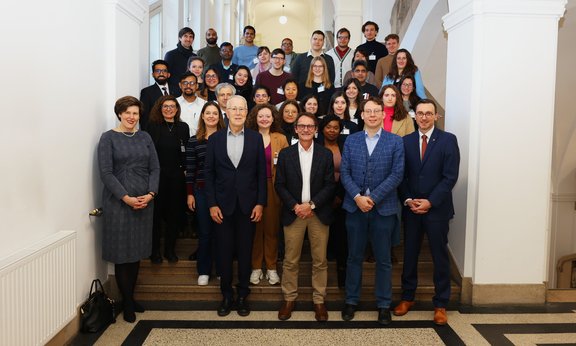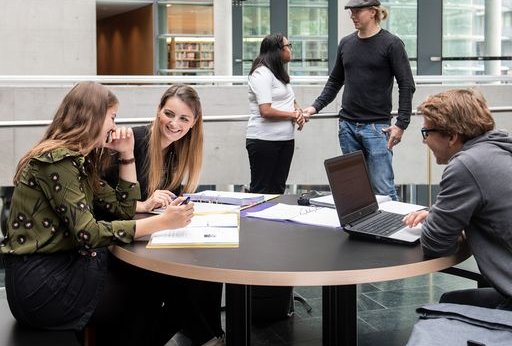Doctoral Programme in Political Science
You would like to deal intensively with a topic in political science?
The doctoral programme in political science provides students with the tools to conduct independent, high-quality research, enabling them to pursue academic careers. Graduates are equipped with skills to take on policy-oriented roles in the private, public and international sectors.
Study code
UC 094 xxx | UC 794 570 xxx
FAQ
Graduates are qualified junior academics. They have mastered the methods applied in research in their area and are capable of critically discussing, analyzing, and further developing theories. Junior academics possess the competence to develop and conduct substantial research projects with scientific integrity, and they are qualified to reflect on these processes scientifically and theoretically. They are also aware of issues and questions in gender research.
The core of the Doctor of Philosophy Programme Political Science is the ability to conduct theoretical and empirical political science research and to contribute this work to the national and international research process through publication. Graduates are capable of teaching political science and further developing theoretical and empirical research methods.
Graduates of the Doctor of Philosophy Programme Political Science possess competences and knowledge to make scientific contributions that meet international research standards and to add these to the international research process, in particular through the dissertation as an independent research project. They are capable of developing research projects independently and creatively and of realizing these projects successfully with the support of national and international research promotion organizations. They are able to communicate with the scientific community about their area of expertise and can present their results to the community as well as work and engage in discussion in interdisciplinary contexts.
Career opportunities for graduates of the Doctor of Philosophy Programme Political Science may be found in universities, research institutions and other post-secondary educational facilities. They are able to fill leadership positions in research facilities of national, transnational and international institutions, in governmental and non-governmental interest groups, in political institutions and in the media. Have a look at some of our former students and their careers.
Graduates tracking: Shows which occupational fields students can enter after graduation.
More offers
Faculty of Social and Political Sciences Examination Office Information for students with disabilities
Curriculum
From the field

„Winter School on Federalism and Governance“ in 15. Runde
29 postgradual Studierende und Nachwuchsforschende aus Afrika, Amerika, Asien und Europa nehmen derzeit an der 14. Winter School on Federalism and Governance teil, die sich – ganz im Einklang mit dem Querschnittsthema „Nachhaltigkeit“ an der Universität Innsbruck - dieses Jahr dem Thema „Federalism and Sustainability“ widmet und unter der Schirmherrschaft des Europarats steht.

FWF fördert 6 Projekte
Bei der FWF-Kuratoriumssitzung im März wurden vier Einzelprojekte und zwei Esprit-Projekte von Wissenschaftler:innen der Universität Innsbruck bewilligt.

Marianne-Barcal-Preis 2023 vergeben
Seit acht Jahren wird der Marianne-Barcal-Preis jedes Jahr an Studierende der Universität Innsbruck verliehen, die sich durch hervorragende Abschlussarbeiten in den Fächern Zeitgeschichte, Politikwissenschaften, Geschichte sowie benachbarte Disziplinen ausgezeichnet haben. 2024 geht der Preis an drei Wissenschafter zu je 2.000 Euro Preisgeld.

Madagaskar, Medien und Außenpolitik im Wald
Studieren ist mehr als Zuhören im Hörsaal: Student:innen gestalten Podcasts, fahren nach Madagaskar auf Exkursion, treffen Medienschaffende und helfen, die Leistungen des Waldes zu erhalten.






